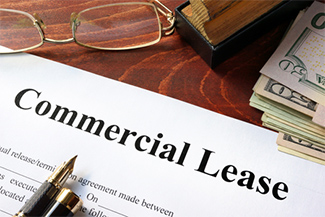The typical business owner doesn’t worry about a real estate lease except when it is created or when it is time to renew. In some cases the renewal process consists of a one-page addendum signed by both parties agreeing to a new monthly rent and an extended term with other provisions carrying over from the existing lease. This quick renewal can have unintended consequences during the late stage of the business sale transaction.
The biggest challenge is the length of time remaining on the lease when the transaction closes. [quotesright]It can be a benefit (long term lease of strategically located space) or a liability[/quotesright] (more than five years remaining on a lease when the buyer is planning to consolidate the company into an existing operation). In the years leading up to sale be careful to negotiate as much flexibility as possible into a real estate lease.
Buyers will include a satisfactory review of all real estate leases as part of the due diligence process. [quotesright]Below is a partial list of issues with a real estate lease/[quotesright] that can impact a deal:
In an extreme example, a client had a provision in his lease stating that in order to transfer the lease, the assuming party’s (buyer’s) net worth had to be equal to or greater than the releasing party’s (seller’s). A logical provision from the landlord’s perspective, he wanted a new tenant at least as financially stable as the current tenant. But dig deeper. This provision was written twenty years earlier when the seller/tenant had a very low net worth. Now, 20 years later, the seller’s net worth includes two houses paid in full, a business he is being paid nearly five million dollars for, plus cash, savings, stocks, etc. [quotes]This clause created a nearly impossible hurdle.[/quotes] While the deal closed, a lot of money was spent by the seller for his attorney to clear up the provision.
The moral is [quotesright]before you renew your lease again, review it from a buyer’s perspective[/quotesright] and from the landlord’s perspective. Note what provisions are triggered in a transfer. Work with your attorney at renewal time to draft a lease that is favorable or at least flexible in a transaction.
KNOW what is in your lease before putting the company on the market.
Coming next month: “Enhance the Presentation and Curb Appeal”
- by Greg DeSimone - Beacon Equity Advisors, Inc.















